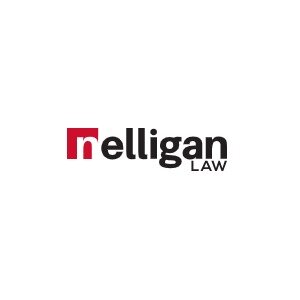Best Housing, Construction & Development Lawyers in Ottawa
Share your needs with us, get contacted by law firms.
Free. Takes 2 min.
Free Guide to Hiring a Real Estate Lawyer
List of the best lawyers in Ottawa, Canada
About Housing, Construction & Development Law in Ottawa, Canada
Ottawa, as the capital of Canada, has a robust Housing, Construction & Development sector, which is meticulously regulated by municipal and provincial laws. These laws outline the rules for zoning, property management, real estate transactions, building codes, and environmental considerations. They also direct on consumer protections associated with purchasing a residential property or commercial real estate, and address issues related to landlord-tenant relationships. The purpose of these laws is to ensure safety, quality, and appropriate land use, as well as fairness and transparency in transactions.
Why You May Need a Lawyer
Navigating the legalities in the Housing, Construction & Development sector can be complex, particularly for individuals without a background in law. You may need a lawyer for a range of situations, such as reviewing construction contracts, resolving zoning disputes, handling real estate transactions, litigating construction defects, negotiating leases or dealing with eviction procedures. Lawyers proficient in this field also offer advice on compliance requirements, assist with retaining necessary permits, and represent you in front of regulatory bodies or in litigation if disputes arise.
Local Laws Overview
Ottawa's local laws in the Housing, Construction & Development field are comprehensive. Demarcated zoning specifies land use, whether for residential, commercial, or mixed-use development. The Ontario Building Code provides standards for construction including safety regulations, permits, and inspections. Ontario's Condominium Act dictates how condominiums are created, owned, and governed. The Residential Tenancies Act establishes the rights and obligations between landlords and tenants. Comprehensive development applications must be submitted for major projects which include provisions for environmental impact and public participation requirements.
Frequently Asked Questions
1. What is zoning and why is it important?
Zoning is the demarcation of the city into different areas, each of which has designated uses (such as residential, commercial, industrial). It helps the city to plan and manage land use effectively, ensuring suitable locations for activities and mitigating conflicts between contrasting usages.
2. What is the Ontario Building Code?
The Ontario Building Code delineates the minimum standards that must be met in construction relative to the safety, health, accessibility, and conservation of buildings. It applies to the construction of new buildings, as well as renovations, and major changes to existing ones.
3. What rights do I have as a tenant in Ottawa?
As a tenant under the Residential Tenancies Act, you have several rights including the right to reasonable enjoyment of your property, right to privacy, and the right to live in a habitable property. Your landlord cannot arbitrarily evict you without adhering to specific procedures outlined in the Act.
4. What are occupancy permits?
Occupancy permits are official documents issued by the city that verify a building complies with various laws and is safe for occupancy. In many cases, an occupancy permit must be obtained before a building can be used or inhabited.
5. Can I appeal a zoning decision made by the city?
Yes, if you disagree with a zoning decision, you can appeal to the Local Planning Appeal Tribunal. It's recommended to seek legal counsel to guide you through this process.
Additional Resources
The City of Ottawa's official website provides many resources, including an online zoning map, databases of local laws, and information about applications for building permits. The Ontario Ministry of Municipal Affairs and Housing and the Landlord and Tenant Board also offer valuable information related to Housing, Construction & Development laws.
Next Steps
If you require legal assistance, the first step is to consult a lawyer specialized in Housing, Construction & Development law. Your lawyer will guide you through the legal maze, help you understand your rights and obligations, and represent you in administrative bodies or court as required. The Law Society of Ontario offers a referral service which can be a helpful starting place to find a suitable lawyer.
Lawzana helps you find the best lawyers and law firms in Ottawa through a curated and pre-screened list of qualified legal professionals. Our platform offers rankings and detailed profiles of attorneys and law firms, allowing you to compare based on practice areas, including Housing, Construction & Development, experience, and client feedback.
Each profile includes a description of the firm's areas of practice, client reviews, team members and partners, year of establishment, spoken languages, office locations, contact information, social media presence, and any published articles or resources. Most firms on our platform speak English and are experienced in both local and international legal matters.
Get a quote from top-rated law firms in Ottawa, Canada — quickly, securely, and without unnecessary hassle.
Disclaimer:
The information provided on this page is for general informational purposes only and does not constitute legal advice. While we strive to ensure the accuracy and relevance of the content, legal information may change over time, and interpretations of the law can vary. You should always consult with a qualified legal professional for advice specific to your situation.
We disclaim all liability for actions taken or not taken based on the content of this page. If you believe any information is incorrect or outdated, please contact us, and we will review and update it where appropriate.









